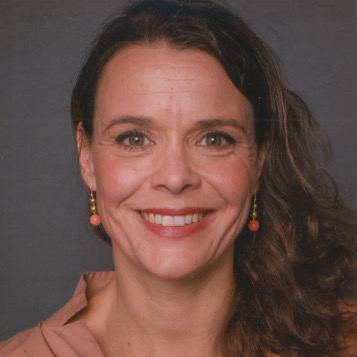Franziska Wizany: We’re not just talking about Mozart here.
Culture is to knowledge as creativity is to joy. There is a human side to every creative endeavor. The trick is to locate it, to make creativity indispensable to our very being. Franziska Wizany, the cultural advisor at Saxon Mozart Society, formerly the Mozarteum Foundation in Salzburg – the birthplace of Mozart – doesn’t take for granted what it takes to bring forth the man behind the music. And we’re not just talking about Mozart here.
The Saxon Mozart Society, founded 30 years ago in Chemnitz, Germany, supports the creativity of young talents, cultivates classical music, and enriches a love of music through various concerts and projects. It gives Mozart a space to grow and inspire others and is now trying to open the musical borders across Europe and abroad. Franziska takes the influences and the fundamental context that shaped the person Wolfgang Amadeus Mozart as her joie de vivre.
“Having the history of Mozart in the background,” Franziska told Sonophilia, “is usually something very important for the storytelling of a cultural institution. The work of the society is based on his music, but – and that’s what I really like – it’s also based on the human side of Mozart. Mozart was very open, humorous, tolerant, and always curious about what makes life worth living.”
True to this, Franziska works hard to seek meaningful projects that help enhance her understanding of the human condition. Having been socialized with classical music early on, playing the flute and the violin, and singing in her church and school choirs, she was always passionately in touch with the classical music genre. She defines culture as “the total sum of everything society creates,” whether this relates to values, traditions, religion, or language. Creativity, she suggests, must be weaved throughout society into a grand and beautiful tapestry with all the colors of its soul.
“Creativity is the ability to create values and to create something new in small and in larger environments, with the intention to shape a better world. That’s something I often see in the music world; music is one of the most powerful ways human beings connect and break through boundaries.”
One of Franziska’s most prominent and “most mind-changing” projects was Mozart in Havana, in association with the Mozarteum Foundation. She highlights this venture in a chapter of the Sonophilia Foundation’s new book Creativity Matters, being launched at the Frankfurt Book Fair Digital Edition in October. In short, she helped develop the first professional youth orchestra in Havana, Cuba to nurture the musicians’ talent, enthusiasm, and creativity. Franziska stressed how liberating it felt to break out of her classical Mozart bubble in Salzburg for a change.
“It was new to feel the power of music within a completely different community… We need to feed this atmosphere and to work with people, where everybody tries to be the best they can. The social impact of music and working with diverse musicians from different backgrounds was something I loved. I now try to continue with [similar] social music projects, not only working for this classical music landscape.”
Culture is often considered synonymous with tradition, a constant and unchanging part of society. This can stunt the flourishing of creativity, but the key is for cultural institutions to embrace these seemingly old-fashioned ideals and give them a means to rebirth. Franziska offered some valuable insights into how they must go about such a monumental task.
“Culture institutions have to be much more [in tune with] the perils of time. Listen to their audience and to current developments, which happens day by day. Everything has to be intentionally not fashionable. I think that most cultural institutions have to leave their ivory tower and lose their fear of new developments, look towards new cooperation, and think more out of the box.”
Music can be thought of as a universal language, regardless of our cultural differences. We needn’t aim for a robotic precision or a means to dwarf others’ goals. On the contrary, creativity brings people together, allows us to find common ground, grow together, and overcome challenges. It dares us to find our joy.
“At the end, it’s all about doing what you love: playing music because you love it. That’s what creativity is about: doing what you love and feeling confident. That’s what I love within these projects I’m now working with, that it’s not about strategy plans, project plans in a classical way. It’s this holistic approach about the musicians, the music, doing beautiful projects together, and having fun.”
It’s especially important to cultivate children’s creativity as they grow and mature, to give them the tools needed to unleash their creative ideas and critical thinking skills into greater society to make a positive impact. Franziska believes the future lies in mitigating children’s values, bringing up great musicians around the world, and bolstering their creativity.
She said: “The ultimate goal should be to inspire children and [youth], to empower them to live up to their full potential as individuals and citizens… Being a musician is not only playing the instruments [perfectly]; it’s always telling a story, being in dialogue with other musicians.”




